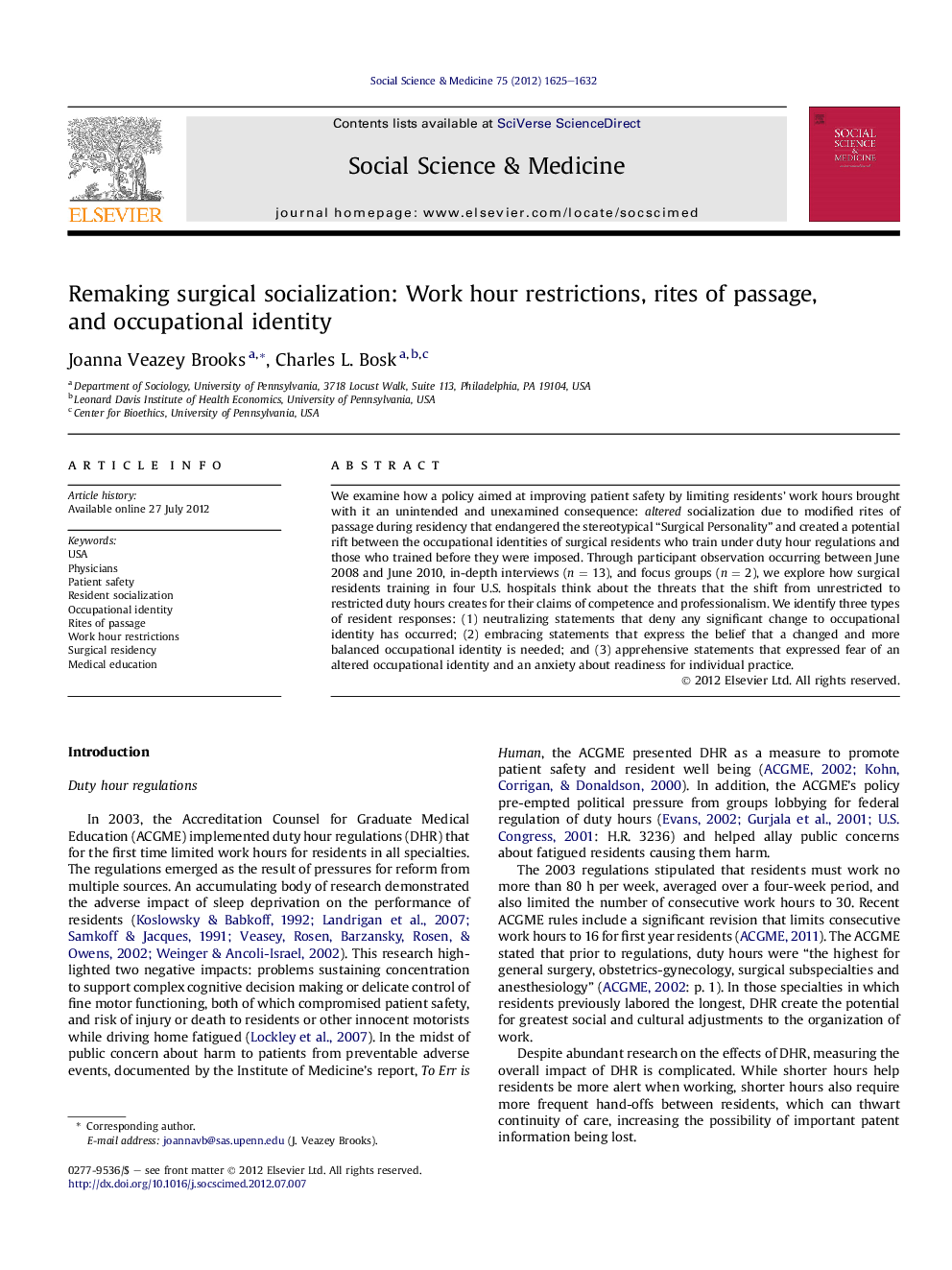| Article ID | Journal | Published Year | Pages | File Type |
|---|---|---|---|---|
| 952446 | Social Science & Medicine | 2012 | 8 Pages |
We examine how a policy aimed at improving patient safety by limiting residents’ work hours brought with it an unintended and unexamined consequence: altered socialization due to modified rites of passage during residency that endangered the stereotypical “Surgical Personality” and created a potential rift between the occupational identities of surgical residents who train under duty hour regulations and those who trained before they were imposed. Through participant observation occurring between June 2008 and June 2010, in-depth interviews (n = 13), and focus groups (n = 2), we explore how surgical residents training in four U.S. hospitals think about the threats that the shift from unrestricted to restricted duty hours creates for their claims of competence and professionalism. We identify three types of resident responses: (1) neutralizing statements that deny any significant change to occupational identity has occurred; (2) embracing statements that express the belief that a changed and more balanced occupational identity is needed; and (3) apprehensive statements that expressed fear of an altered occupational identity and an anxiety about readiness for individual practice.
► A neglected effect of duty hour regulations for surgical residents in US hospitals is a threat to their occupational identities. ► Restricted hours change traditional rites of passage to becoming a surgeon, creating a generational rift between surgeons. ► Findings identified three types resident responses to this threat: neutralizing, embracing, and apprehensive. ► Some responses minimized change; others saw regulations as helpful for changing the grueling nature of surgical residency. ► Other responses expressed anxiety about the impact of reduced working hours on their training and confidence.
